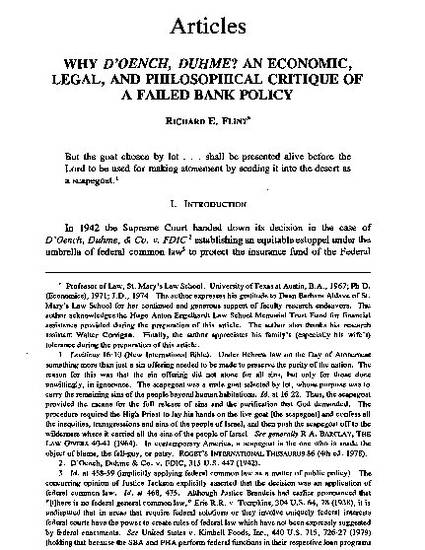
In 1942, the Supreme Court handed down its decision in the case of D’Oench, Duhme, & Co. c. FDIC. This decision established an equitable estoppel under the umbrella of federal common law to protect the insurance fund of the Federal Deposit Insurance Corporation (FDIC) from secret agreements between borrowers and banks which misrepresented the value of a bank’s assets.
In the last fifty years, the D’Oench doctrine has been greatly expanded by the courts, and its purported legislative counterpart, 12 U.S.C. Section 1823(e) has enjoyed similar expansion. More recently, courts have even created a fiction by holding that the FDIC enjoys rights as a holder in due course under federal common law as a necessary extension of the original D’Oench doctrine. During this expansive development, one consideration has remained constant. The goal sought to be preserved by this unbridled growth of the doctrine was the protection of the insurance fund as an integral part of regulatory failed bank policy. The core value inherent in this goal was, and continues to be, economic.
However, neither courts, legislators, nor academicians have suggested any major reconsideration of one of the most misguided disciples of failed bank policy—the D’Oench doctrine. With the tidal wave of litigation involving the FDIC, Resolution Trust Corporation (RTC), and successor financial institutions, serious critical analysis needs to be given to D’Oench and the current economic approach to the failure resolution system. This analysis will show that the D’Oench doctrine has placed economic values on a pedestal, effectively trumping ethical values of common decency and fair play, and that it is time to apply a new value-based approach to banking regulatory policies.
